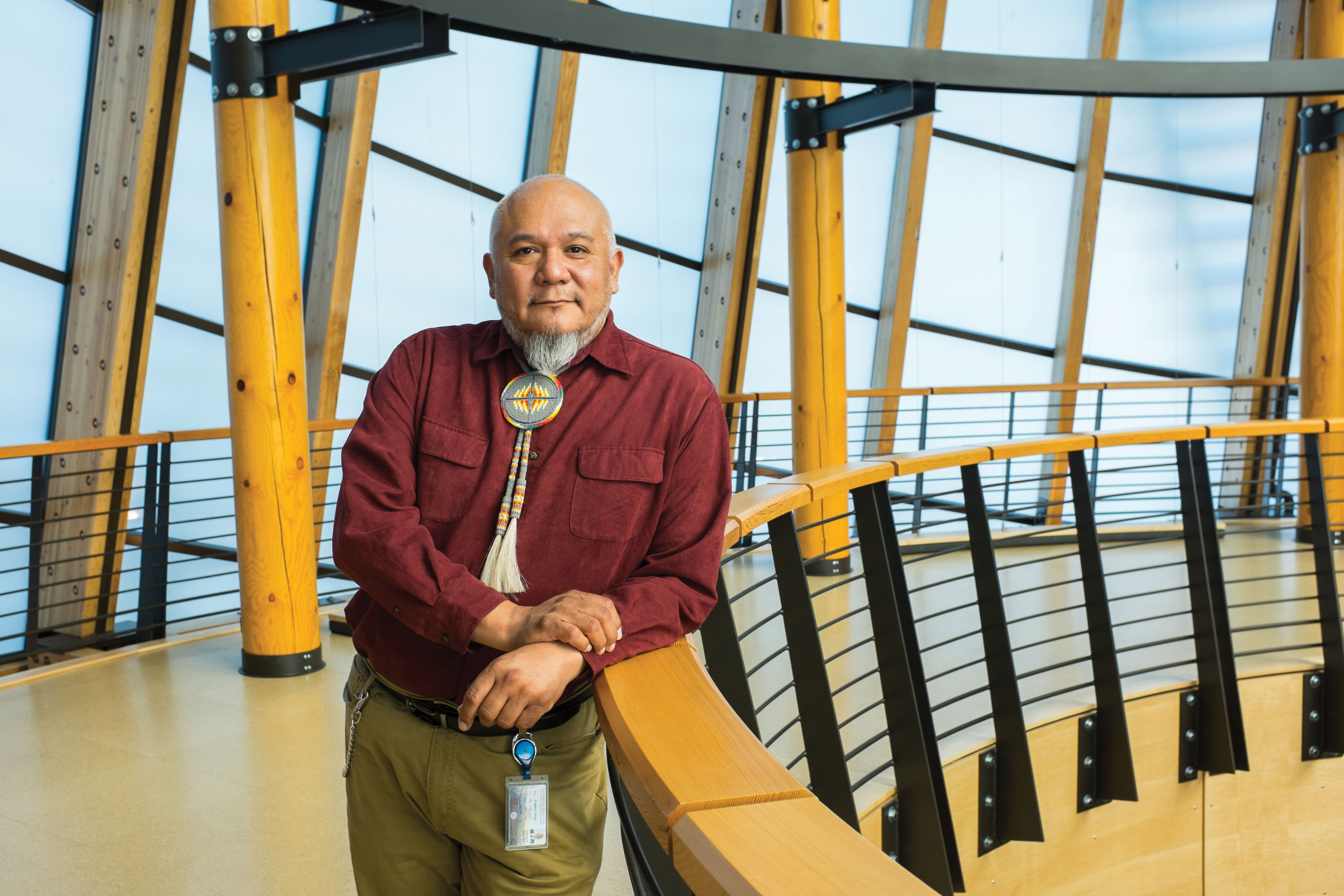Cultural Preservation Director Edward Box III, started his position in December 2016 and began to pursue the ideas set forth in a 2014 Tribal Resolution, in what Box describes as his “first big and important project,” as director. Chairman Clement J. Frost signed a resolution in 2014 to preserve and teach Ute language to tribal members, tribal staff and students in the Ignacio school system.
“I’m really focusing on the language, engaging with elders and sister tribes [in the process],” Box said. “The main focus is to get it back into the schools.”
The Cultural Preservation Department is working as a team with staff, Ute elders, and the Ignacio School District. Three tribal elders are currently working to create a curriculum for the program.
The present goal is to begin with classes offered at Ignacio High School and then shift the focus to include Ignacio’s middle school and elementary. The projected start date would have Ute language courses starting as soon as the fall semester of 2017. Over the past few years, there has been a push to have the Ute language taught earlier in Ignacio public schools, at least at the middle school level, when most SUIMA students enter the public school system.
“My grandparents always spoke Ute,” said Box, “I want to encourage tribal elders to pass that on.”
Box explained the conditions he perceived as factors, which helped lead to the decline of fluent Ute being spoken among the Southern Ute people.
Many Utes were discouraged from speaking the Ute Language, especially in the boarding schools. Which then attributed to the loss of language for many Utes of that generation, impacting Ute families who began conversing in English in their own homes – eventually teaching their children English first and Ute second.
The other factor is more straightforward in that the Utes have adapted to English in modern times.
“Ute needs to be our main language,” said Box.
“I need to capture what I can with our tribal elders now,” said Box. “We become our [Ute] bands when we speak our language”
The big question is “how do we capture the younger generation?” asked Box.
Box sees mobile phones and digital media as being a conduit for teaching the Ute language to a younger generation.
“They need to learn to speak Ute,” Box said.
The language courses are expected to be led by tribal elders or tribal members with language experience. Additionally, the teachers will be required to obtain their teaching certification through the State of Colorado.
“Hopefully we can all come together to preserve the language,” he said.

